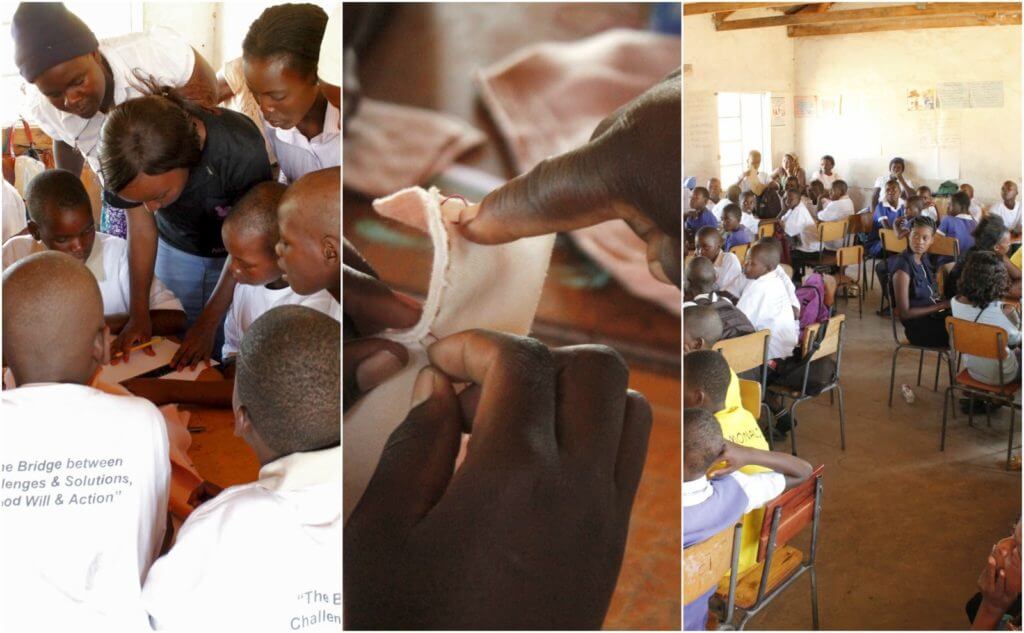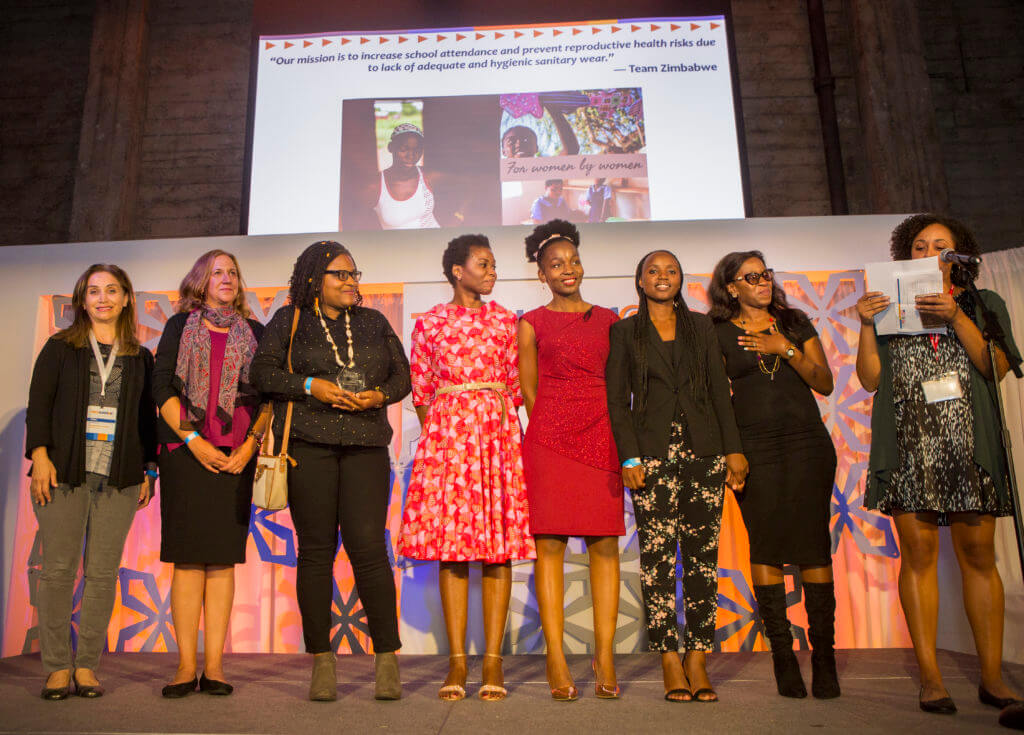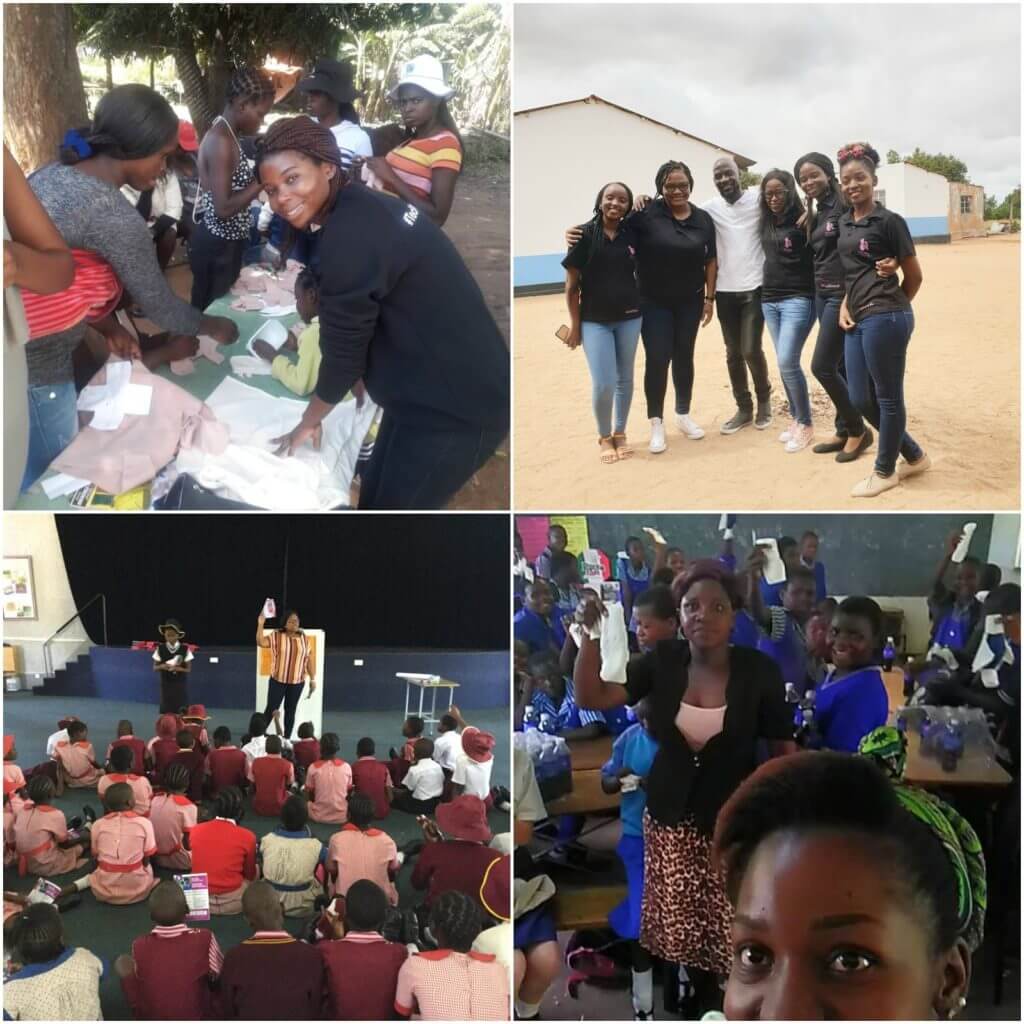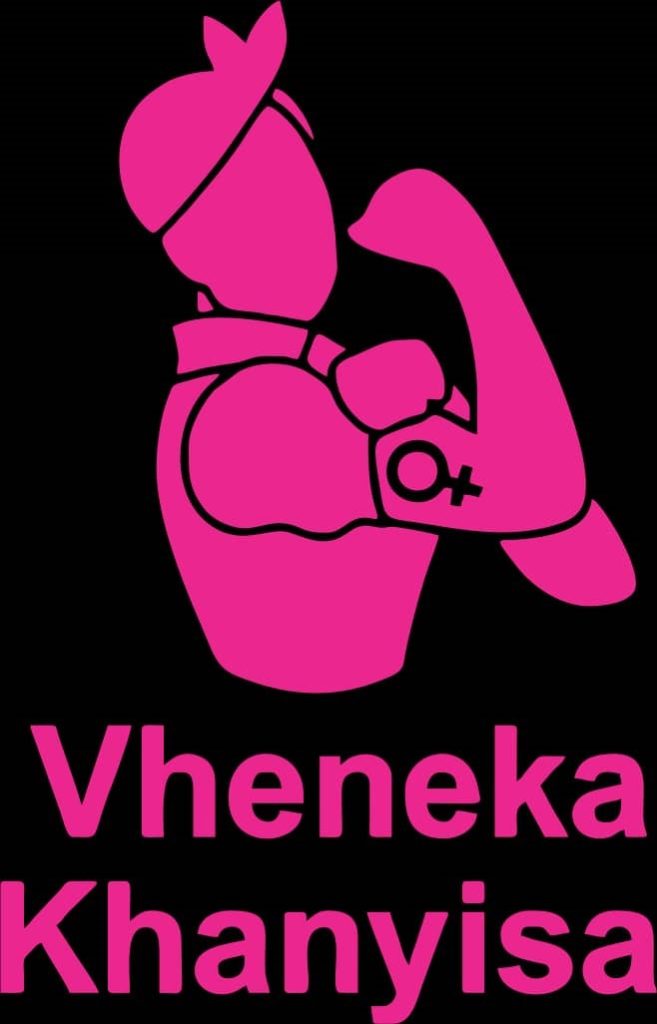Guest post by Natsai Mutezo, Edith Mugehu, Nothando Nlovu, Sandra Chipuka and Prudence Kadebu, 2018 fellows of Zimbabwe
Editor’s note: The 2018 fellows of Zimbabwe were one of five country cohorts to receive a $3,000 seed grant to support the implementation of their action plan that was developed during the 2018 TechWomen program. In addition to mentorship and cultural activities, TechWomen participants collaboratively work to develop an action plan to address a socioeconomic issue in their community alongside Impact Coaches.
Finding a common goal
What motivated a software engineer, a biotechnologist, a biomedical scientist, a physicist and a chemical technologist to start an organization that trains girls and women to make reusable pads? In conceiving of our impact project, we brainstormed breakthrough solutions like IoT devices to detect water impurities, rapid HIV testing methods custom-made for the African market and solar solutions for off-grid areas. Between the five of us, we had 14 of the best mentors Silicon Valley has to offer, and we all came down to the same passion and solution. Why did our highly skilled and technical team pitch a project on making reusable pads and not the next exponential technology?
A girl can only have a fair shot in the classroom if we minimize her chance of missing school
During week one of the TechWomen program, we were pleasantly surprised to find that the bathrooms of our various host companies offered an array of necessities and toiletries; particularly notable was the fact that the ladies’ bathrooms were equipped with women’s sanitary products. While at Action Plan I, our first team brainstorming session, we continually came back to the topic of sanitary wear. After reviewing the statistics, we discovered that 60% of rural Zimbabwean girls and women face period poverty — limited or no access to sanitary wear nor menstrual hygiene education — and that girls miss at least 20% of their school life while on their period. This amounts to a significant portion of individuals who may not finish school and may never contribute meaningfully to the economy, let alone sit at a table in Silicon Valley designing viable solutions to impact their communities.
Girls and women who cannot afford sanitary wear inevitably practice poor menstrual hygiene, using newspapers, leaves and even cow dung to substitute conventional materials. According to UNICEF, poor menstrual hygiene can cause physical health risks and has been linked to reproductive and urinary tract infections. Young girls who do not receive an education are more likely to enter child marriages and experience early pregnancy, malnourishment, domestic violence and pregnancy complications as a result.
Vheneka/Khanyisa: Light for Women
Through our initiative Vheneka/Khanyisa, which translates to “light for women,” we hope to change the narrative of the girl child through ending period poverty in rural Zimbabwe. Using the Train the Trainer method, our program trains rural communities to make reusable sanitary pads with an emphasis on using locally available raw materials. The average woman will use 12,000 to 16,000 sanitary pads, tampons and panty liners in her lifetime, with those materials finding their way into landfills, oceans and in the black clouds of smog from incinerators across the globe.
We received training from a community expert on menstrual hygiene management education, and established partnerships with various organizations including Grow Africa Foundation, The Forum for African Women Educationalists Zimbabwe Chapter (FAWEZI), Scripture Union Zimbabwe and local churches. Each of our sessions is conducted in collaboration with educators, health and social workers and various organizations with common interests.
When initiating our project, we ventured into various communities equipped with sewing tools, pad-making materials and lots of heart. Our first session was with a farming community in Goromonzi, a town outside of Harare. During the training, there was an overwhelming sense of camaraderie among the women through shared stories and empathy for one another’s experiences. Next, we trained inmates at Mutimurefu Prison, as they were in dire need of sanitary wear. At another session at Ratidzo Primary School in Chiredzi, little girls told us they wanted to be like us when they grew up. We continued our sessions, visiting schools in the southern region of the country, and schools and farms in all four corners Zimbabwe. Between January and May 2019, the Vheneka/Khanyisa initiative trained 525 girls and women.

Vheneka/Khanyisa partnered with Grow Africa Foundation and trained participants alongside their program, Project Penya, which supplies school girls with eco-friendly pads.
Looking forward
Our team believes that increasing girls’ chances of success should be addressed at a basic and inclusive level. We believe governments should make feminine hygiene a priority in order to build better nations.
The challenge to the feminine hygiene industry is to find innovative ways of bringing sustainable sanitary wear to market and finding solutions to creating disposable, biodegradable, self-cleaning and reusable products. Our long term goal is to advocate for access to sustainable sanitary wear for every woman and girl and contribute to empowering women across communities.





Speak Your Mind